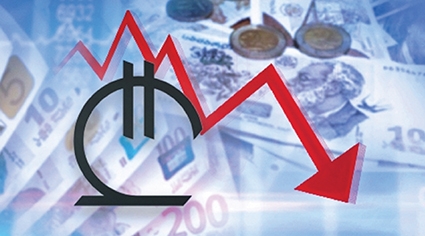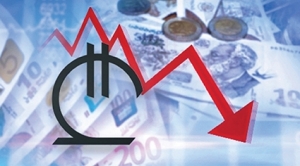Experts Believe Government’s New Economic Plan Creates Lari Fluctuation
Economic experts in Georgia believe that the government’s new economic plan, which envisages an increased tax on some products and the Larization of loans, has created negative expectations on the market and resulted in a fluctuation of the national currency Lari (GEL).
At the beginning of the month, the GEL reached its worst historic rate of depreciation against the United States Dollar, with one USD amounting to 2.71 GEL in some banks, up from 2.53 the previous day.
The National Bank of Georgia (NBG) then issued a statement blaming the value of the US Dollar on the world exchange market for being the main cause of the GEL weakening.
The Bank also claimed that the main factors for the latest negative pressure on the exchange rate were false expectations about the GEL’s further devaluation, because citizens are converting their GEL into USD, and because those same citizens are saving their money in USD. Soon after the statement from the NBG, the GEL rate stabilized at 1 USD to 2.56 GEL.
Most analysts believe the recent economic developments are directly linked with the government’s Larization plan and increased taxes from 2017 on tobacco, imported cars and oil products.
The increase on oil products means a 0.23 GEL increase on fuel, 0.25 GEL increase on diesel and 0.12 GEL increase on gas.
“When the importers learned that from January 1 they would have to pay more excise tax, they decided to buy extra products before that period, which increased dollar transactions from the country and resulted in the devaluation of the GEL,” economic expert Beso Namchavadze stated.
Economic analyst Mikheil Dondua believes that the situation was created by “deliberate speculations from some major Georgian banks,” and calls on law enforcers to investigate the case.
“This was anti-state action and all guilty people should be punished,” he said.
However, financial expert Nodar Ebanoidze says the recent developments were a result of panic and that the negative trade index and lack of investment are also main factors.
Head of the organization ‘Society and Banks,’ Giorgi Kepuladze called on the government and the NBG to do their best to avoid further devaluation of the GEL.
Kepuladze disapproved of the government’s decision to introduce property tax for car owners and believes this step will have a negative impact on auto importers and will increase car prices.
“Sharp changes bring negative results to the economy, and to business in general. The government wants to increase taxes in order to fill the deficit of next year’s budget,” said Kepuladze.
The main opposition party United National Movement (UNM) says the fluctuation of the national currency was caused by the improper economic policies of the government.
“When the government announces increased taxes on diesel and gas, this negatively affects our business environment, economic development and GEL rate,” said Zurab Chiaberashvili, member of the UNM.
Georgia’s Finance Minister, Dimitry Kumsishvili, also commented, saying that “some wrong decisions” made by private sector players resulted in the devaluation of the GEL.
He said that the situation on the monetary market had been regulated thanks to the right coordination of the Finance Ministry and the NBG.
The GEL devaluation against the USD began in November, 2014. At that time, one US dollar was equivalent to 1.75 GEL. Today, 1 USD officially equals 2.60 GEL.
Thea Morrison












